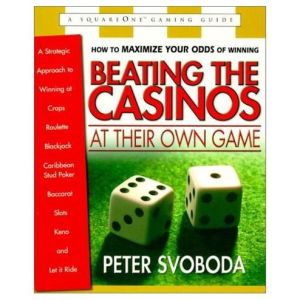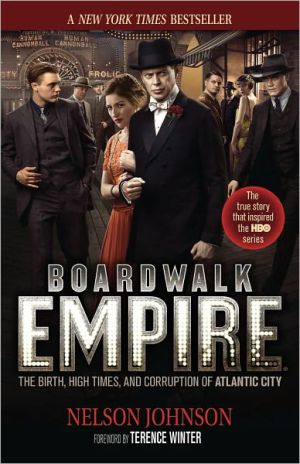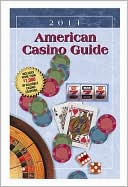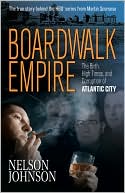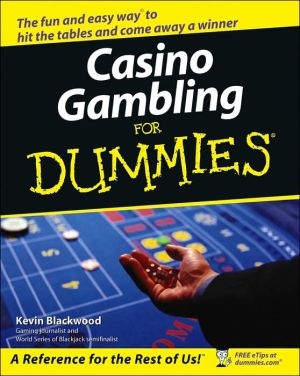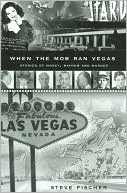Beating the Casinos at Their Own Game
Whether you’re a novice gambler or a seasoned veteran, this easy-to-follow, fullcolor guide will enable you to walk into any casino and approach the gaming tables and slot machines with confidence. After clearly explaining the rules of each game, gambling expert Peter Svoboda details the “smart” way to play, offering unique tips and strategies that will increase your chances of winning. You’ll learn which games offer the best odds, how to make calculated wagers, and how to avoid “sucker...
Search in google:
All casinos set up their games with one goal in mind--to take your money and make it theirs. But you already know that. What you may not know is that by understanding how to avoid their carefully designed traps, you can greatly decrease their odds of winning. More important, by learning proven systems of play, you can greatly increase your own chance of winning. In other words, you can beat the casinos at their own game. Beating the Casinos at Their Own Game is an easy-to-follow guide to winning at casino games. For each game, from roulette to craps and more, gambling expert Peter Svoboda first clearly explains the rules of play so that the novice gambler as well as the veteran can enter a casino with confidence. He then details the "smart" way to approach that game, including unique strategies that will increase your chance of winning. The author demonstrates which games offer the best odds, and how you can make the most calculated wagers. You'll even learn how to manage your gambling allowance--an important key to gambling success. With the ever-increasing popularity of Las Vegas; Atlantic City; and casinos on cruise ships, reservations, and more, it's clear that the gambling industry is taking the country by storm. It is also clear that casinos are reaping profits simply because most gamblers don't have the right strategies they need to succeed. Now Peter Svoboda tells you not only how to get in on the action, but also how to cash in on the profits and walk away a winner. Peter Svoboda is a licensed professional engineer with degrees in Mechanical and Civil Engineering from the New Jersey Institute of Technology. A veteran gambler with over twenty-five years of experience in casinos all over North America, Peter has studied the odds and probabilities of the various games to develop proven strategies of play. Casino Detroit Magazine If you're inexperienced at these games, you can take an expert with you... It has all the basic playing information you need to improve your chances of winning.
\ BEATING THE CASINOS AT THEIR OWN GAME\ \ \ \ By PETER SVOBODA \ Square One Publishers \ Copyright © 2001 \ \ Peter Svoboda\ All right reserved.\ \ \ ISBN: 978-0-7570-0005-8 \ \ \ \ \ Chapter One Hook, Line, and Sinker \ As the casino industry grows, it needs to tap into fresh markets to reach new patrons while managing to retain its present clientele. It is a business of strategic marketing-a gamble in itself. Effective marketing techniques are necessary to get people into the casinos. More people in the casinos means more money being gambled. Of course, this translates into more money for the casinos, which must generate enough income to cover their operating costs and turn a tidy profit along the way.\ As more and more casinos are built in areas like Las Vegas and Atlantic City, the greater the competition has become to attract patrons. Once targeted primarily for gamblers, casino hotels are now built with appeal for all types of people in mind, including families with children. And talk about fantasyland! You can walk into one hotel and swear you have just stepped onto a Mississippi riverboat, while another hotel will have you believing you are in Cinderella's castle, a Wild West saloon, or a full-scale amusement park.\ Casino hotels also try to provide nongambling attractions for everyone. In addition to their standard gaming rooms, most major hotels house video arcades, boutique malls, and elaborate spas; they offer places to eat, ranging from oyster bars and sandwich shops to magnificent four-star restaurants. To keep their patrons from leaving, good hotel proprietors knows they must offer them everything. Concerts, major sporting events, and big-name entertainers are scheduled to appear year round. Not only do these types of attractions provide entertainment for guests of the hotel, they also draw crowds from the outside. And let's face it, that's the number-one rule of the casino game-get the people into the establishment.\ Warner Brothers Studio stores have opened in casinos from Atlantic City to Australia. High-end retail shops and boutiques, such as Armani, Gucci, Tiffany, and Chanel, also lease space in casinos. Famous restaurants like Planet Hollywood and the Hard Rock Café are now located in various casinos, as well. The appeal and credibility of these big-name establishments, in essence, help to create the casino's veil of disguise. According to a recent statement from the Las Vegas Convention Authority, although people are spending more money in Las Vegas, the percentage spent on gambling has been decreasing over the years. Approximately 53 percent of the city's revenue comes from gambling, while the rest comes from hotel rooms, restaurants, and shops. However, incentives to attract and retain customers are still standard operating procedure for casinos, some more than others.\ GETTING YOU THERE\ Of course, casino hotels may provide wonderful self-contained environments for their patrons, but the bottom line is that they have to actually get them there to begin with. It is for this reason that most hotels will go to great lengths to attract customers. They entice them with discounted travel packages and loads of "perks" and giveaways.\ Junkets\ Junkets are special packages set up for groups of gamblers who are considered special guests of the hotel. In exchange for discounted or free airfare and room accommodations, as well as complimentary meals, entertainment, and other hotel amenities, those who arrive on junkets are committed to gamble a specific number of hours in the casino. Some junkets require that the players gamble a certain amount of money.\ Casino operators know that players who have come on junkets are likely to pay for the cost of that "complimentary" trip many times over in the casino. The longer a person plays, the greater his chances are of losing money. Those who visit casinos on junkets are monitored very closely to ensure that they own up to their end of the deal. Players who do not gamble the required amount of time will not be invited back, and they may forfeit some of the benefits of the junket deal. While the junket's lure of discounted trips may be appealing initially, in the long run, it will probably be cheaper to pay the regular price of the trip, and then gamble as much or as little as you want. You may even win some money by following the advice in this book.\ I once decided to go on such a junket. It was for six nights, and I had to gamble for eighteen hours during my stay. The first night, I played for thirty minutes and was ahead over $600. The next night, within forty-five minutes, I was ahead another $1,200. I stopped for a while then returned to the tables. At that point my luck started to fluctuate, and I was up and down for the rest of my stay. Though I did manage to play the eighteen hours, I gave back all the money I had initially won plus more. Had I played the games the way I know I should have, I would have won enough to pay for the entire trip. Trying to play out the required hours turned out to be my downfall.\ Rolling Out the Red Carpet for High Rollers\ The advent of the computer has made it extremely easy for casinos to keep track of the players in their establishments. Those who gamble often and for high stakes-considered high rollers-are welcomed guests, and casinos will go to great lengths to please them. Once a high roller is an established player in a casino, he will be invited back with regularity. Incurring all costs, a casino typically will provide the high-roller (and any accompanying guests) with airfare and limousine service to and from the hotel, room accommodations including room service, meals in any of the hotel restaurants, tickets to shows, and complimentary use of the spas and any other hotel facilities.\ Discounted Vacation Packages and Day Trips\ It is not only well-seasoned gamblers who are lured to popular gambling locations. Discounted vacation packages are available to usher people from all over the country to places such as Las Vegas, Atlantic City, Reno, Lake Tahoe, and Puerto Rico. Such packages usually include greatly reduced rates on airfare and rooms. Again, casino operators simply want to get the people into their establishments.\ Most casinos have connections with tour bus companies. In addition to including casino stops as part of many of their tour packages, a number of bus companies offer day trips for people in neighboring communities. To give you an example of how big this business is, over 1,300 tour buses arrive in Atlantic City each day. They are filled with people who will spend the next five or six hours trying their luck on games of chance. For a small fee, they typically receive bus transportation to one of the hotels and a complimentary meal in one of the restaurants. Some trips even include vouchers that can be turned in for a small denomination of playing chips.\ KEEPING YOU THERE\ As mentioned earlier, most good casino hotels will provide plenty of perks to attract their guests. Once there, the casino's next job is to keep their gamblers happy-and playing. There are many ways, both obvious and subtle, in which a casino does this.\ Tracking Players\ It is not only the serious gamblers and high rollers who receive perks and other amenities. Any player who is gambling a substantial amount of money may be offered a comp-a complimentary service-by the casino personnel. Comps may include meal vouchers for one of the hotel's eateries, a free night's stay at the hotel, or tickets to a show. Be aware that in most casinos, you will have to ask for comps while you are playing.\ Players who wish their gambling to be observed or rated by casino personnel must sign up for a player or member card. The player presents this card to the casino floorman who records the card number and then keeps track of the player's gambling action. Action includes the amount of money a player "buys into" the game with, the average wager, and the length of time spent gambling. This information is fed into a computer under the player's account, where it is kept on file. And ratings are not limited to table gamblers. Players can be rated on slot machines as well-and this is a big draw for slot players. They simply insert their cards into the machines, which record their slot action. The more money players throw into the machines and the longer they play, the more comps they will receive.\ Once you have signed up for a player card, the casino is able to keep up-to-date personal data on you. Along with basic information, such as your social security number, address, phone number, and date of birth, they are also able to keep track of your gambling habits and your average betting trend. This profile helps the casino analyze how much you are worth to them per trip. Interestingly, according to Trump Castle, about 64 percent of slot players use player cards. On average, cardholders who play the slot machines lose $101 per trip versus $31 per trip for those who do not use the card. Why would the cardholders lose more money? Because people who have the cards want comps, so they put more money into the machines and, consequently, lose more.\ People with player cards, no matter how little they may have gambled with the casino, will inevitably receive a postcard in the mail once or twice a year (often on a birthday) with an invitation back to the casino. Often the postcard will try to lure the person back with offers such as a discounted room or some other amenity.\ Casino Credit\ Casinos want to make sure that you don't lose out on the fun and excitement, even if you don't have the money this week. So, they offer you credit. Just go to any credit window on the casino floor, and as long as you have a good credit standing, you are all set-bing, bam, boom! Time to rock and roll.\ One of my most basic rules is never gamble with money you cannot afford to lose. The concept of casino credit is this rule's biggest offender. Not only does it make it easy for you to "play" with money you don't have (if you had it, you wouldn't need credit), you are also playing with money you cannot afford to lose. Furthermore, once your initial bankroll is gone, chances are you will tap into your credit line again to try to recoup your losses. Odds are that you will end up in major debt to the casino.\ Psychological Manipulation\ So, as you can see, casino operators not only keep track of their high rollers, they target small players as well. It is much easier to get 1,000 people to gamble away $100 than it is to get 100 people to gamble away $1,000. But they have to make sure that their patrons stay there. Keeping players just an extra five minutes can increase a casino's profits tremendously. You may be surprised to learn just how much thought has gone into the building of a successful casino with you in mind. Everything from the décor of the room, to the use of chips, to the speed of the dealers.\ Surroundings\ Casinos have a number of very subtle, psychological ways in which they make their guests comfortable. The most common of these methods is the absence of clocks, coupled with the absence of windows or outside light. This creates the illusion of time standing still. They do not want you to look at a clock and suddenly realize just how long you've been sitting at that table, or to notice that the day is now turning into night (or night into day). The colors of the carpeting, walls, and playing tables have been chosen carefully. Deep colors of red, purple, and black, which help encourage a warm, comfortable mood, are used throughout the interior of many casinos.\ Long rows of slot machines are arranged so that the machines located in the middle often emit soft, cool colors of blue and green while those on the ends blaze with bright shades of red. This design was devised by casino consultant David Britton, who studied the preferences of slot players. He found that at first, most players are attracted to bright red machines; however, they soon tire of them and are then drawn to softer hues.\ Many slot machines now accept dollar bills (and tens and twenties, and ...), enabling players to remain at the machines without having to seek change. And the longer they remain seated, the more money they are likely to put in the machine. Furthermore, as you will see in Chapter 13, many slot machines are programmed to give smaller but more frequent payoffs to entice players to remain at the machines. Some casinos advertise that their slots pay up to 98 percent. Be aware that such payoffs are usually limited to a few strategically located machines, and slot players are forever in search of them.\ In an effort to maintain their clientele, good casino operators leave no stone unturned when it comes to a player's comfortable surroundings. They are aware, for instance, of the effects that lighting patterns, intensity, and location have on the average person. They even know the importance of proper chairs in the casino. Comfortable chairs mean comfortable gamblers-and comfortable gamblers are likely to settle in and play just a little longer. Many casinos have fresh air circulating constantly to minimize player fatigue. After all, an alert gambler is one who keeps playing. Some casinos have even gone so far as to introduce a special scent into the air that supposedly encourages gamblers to wager more money. Thirsty? No need to run to the bar or coffee shop. Waitresses are always nearby to get you that mixed drink or soda or cup of coffee-anything you need-just don't leave the table, don't stop playing.\ Use of Chips\ In an effort to eliminate the association of gambling with the use of real money, casinos require betting with chips. Chips, which are available in $1, $5, $25, $100, $500, $1,000, and $5,000 denominations, give the illusion of fake money. When using casino chips, people tend to lose sight of how much money they are actually wagering. And unless players specifically ask for chips in certain amounts, they will receive them in low denominations. In other words, when buying $100 in chips, the player is likely to receive twenty $5 chips instead of four $25 chips. This serves three purposes: lots of chips will appear like lots of money in front of players; it is more convenient for players to make minimum bets; and it deters players from pocketing chips of higher denominations.\ Dealer Expectations\ Casinos also expect a certain production rate from their dealers, just like in a manufacturing business. Dealers are required to deal a certain amount of hands in blackjack, roll the ball an average number of times in roulette, and see to it that the dice on a craps table are thrown a minimum number of times per hour. In craps, ideally, the dice should be thrown 2.5 to 3 times per minute. This number tends to be smaller when the table is full of players making lots of bets, and/or the dealers are not as experienced as they should be. In this situation, the casino may get a production rate of only 1 throw of the dice per minute. On a blackjack table, the dealer is expected to deal about 1.5 hands per minute. In roulette about 1.25 to 1.5 rolls are expected per minute. How often have you seen the dealers speed up the game? This is especially true in roulette when the game tends to slow down on a full table.\ SUMMING IT UP\ So, once you've taken the bait, chances are you'll be hooked. A casino's relationship with its clients is much like the catch-and-release program in fishing. It catches the fish, lets them have some fun, and then throws them back-only to catch them again another day. Every casino's objective is to have you leave feeling like you have had a great experience, even if you have lost, so that you will want to come back again soon.\ (Continues...)\ \ \ \ \ \ Excerpted from BEATING THE CASINOS AT THEIR OWN GAME by PETER SVOBODA Copyright © 2001 by Peter Svoboda. Excerpted by permission.\ All rights reserved. No part of this excerpt may be reproduced or reprinted without permission in writing from the publisher.\ Excerpts are provided by Dial-A-Book Inc. solely for the personal use of visitors to this web site.\ \
Dedication Introduction 1. Hook, Line, and Sinker 2. Basic Gambling Rules and Casino Protocol 3. Craps: The Game 4. Craps: Systems and Strategies 5. Roulette: The Game 6. Roulette: Systems and Strategies 7. Slots 8. Blackjack 9. Baccarat 10. Let It Ride 11. Caribbean Stud Poker 12. Keno, Red Dog, and Wheel of Fortune References Index
\ Casino Detroit Magazine"If you're inexperienced at these games, you can take an expert with you...[Beating the Casinos at Their Own Game] has all the basic playing information you need to improve your chances of winning."\ \ \ \ \ Casino Detroit MagazineIf you're inexperienced at these games, you can take an expert with you... It has all the basic playing information you need to improve your chances of winning.\ \
